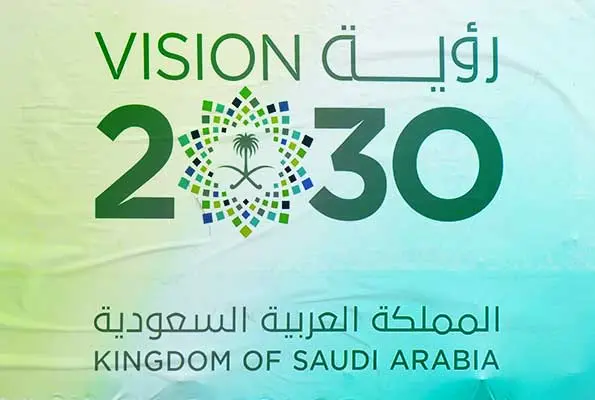The Kingdom of Saudi Arabia maintained its lead as the world’s greatest oil exporter from 1989 until 2016. The nation was highly dependent on the oil industry as its main source of income due to its abundant oil resources. However, with the oil price collapse in the middle of 2014, this has grown to be a significant problem for the Kingdom of Saudi Arabia.
The market’s volatility in oil prices could have unintended consequences for the nation’s economy. Furthermore, analysts point out that there are signs that oil prices will keep falling and fluctuating in the foreseeable future.
Acknowledging the difficulties at hand, the Kingdom has been working to break free from its reliance on the oil industry. Aiming to modernise all facets of administration, especially the economy, this aim has resulted in the diversification agenda called “Saudi Vision 2030,” which aims to mitigate the dangers to the Kingdom’s future aspirations.
Three major pillars have supported “Vision 2030” since its debut in April 2016. These three pillars are an aspirational country, a successful economy, and a dynamic society. By establishing the Kingdom as a hub of civilisation in the Middle East and the Islamic world, Crown Prince Mohammad bin Salman hopes to create investment opportunities with other nations and position the Kingdom as a connecting force between Europe, Asia, and Africa. The Kingdom will use “Vision 2030” as a guide for its policies for the next seven years.
Muhammad bin Salman has made several noteworthy adjustments in verticals that have room to grow, most notably the tourist industry, which is the main target of his large-scale initiatives. Through this sector, the Crown Prince hopes to change Saudi Arabia’s reputation from a conservative nation to a moderate one that welcomes people of all backgrounds and faiths, particularly on a global scale. They also carry this out every year when they invite foreign nations to join in their national celebration, called the Janadriyah Festival.
Honorary Guest
At the Janadriyah Festival, the Kingdom extends an invitation to a different nation each year to be the honoured guest. The chosen nation has the honour of taking part in the event and presenting its arts and culture.
Since the beginning of Saudi Vision 2030, several nations have been invited as honoured guests: Germany at the 30th festival, Egypt at the 31st festival, India at the 32nd festival, and Indonesia at the 33rd festival.
To carry it out, the nation’s named guests of honour are given a pavilion or sizable stage where they can display their artistic and cultural creations, such as singing, dancing, or theatre. To fulfil their cultural missions, these nations usually send delegations or representatives as well.
Increasing The Mutual Understanding
The Kingdom fosters and strengthens bilateral relations with the invited countries by extending invitations to them as esteemed guests. Foreign participation in this festival is also in line with the principles outlined in “Vision 2030,” which attempts to improve the Gulf nation’s standing internationally.
To further its national interests in this area, the Kingdom is using soft power strategies. The Saudi government has undertaken several initiatives to carry out “Vision 2030,” one of which is the use of the Janadriyah Festival as a tool for soft diplomacy.
The practice of cultural diplomacy can provide a springboard for future collaboration. With the abundance of natural oil resources, many nations saw this as a chance to start working with the Kingdom, especially in the areas of culture and education.
The Indonesian government, for example, opened up additional cultural collaboration with the Kingdom as a result of the Southeast Asian country’s success as an honoured guest at the 33rd Janadriyah Festival. Both nations have held several conferences and exhibitions since the honouree status. Numerous of these exhibitions and seminars deal with subjects linked to Islamic history, given the close religious ties between Indonesia and the Kingdom.
The Cultural and Education Attaché of the Indonesian Embassy in Riyadh has also requested that numerous works on Islamic history written in Indonesian be translated into Arabic. Saudi Arabian society’s perceptions of Indonesia’s cultural richness and history have expanded as a result of Indonesia’s involvement in the Janadriyah Festival.
In addition, a significant number of people attend the Janadriyah Festival every year, with attendance usually ranging from 4 to 6 million. This amount breaks the record for most people attending an Arab international festival. This offers the invited nation a great chance to fulfil its cultural mission, which is to acquaint Arab society with its values and customs.



